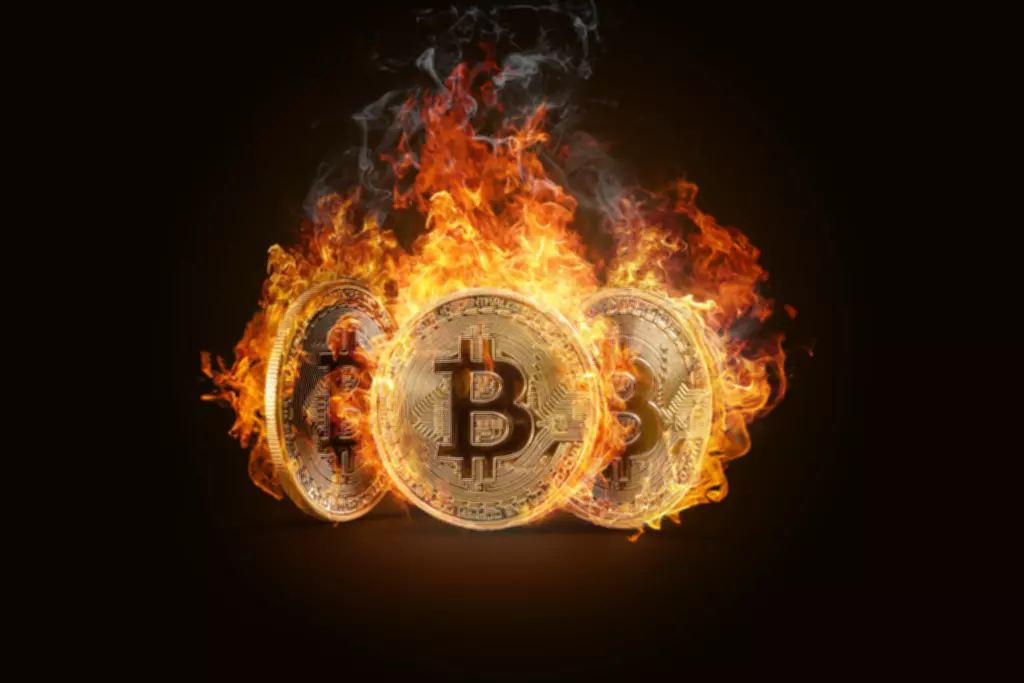Content
In the financial world, a broker makes money by bringing together assets to buyers and sellers. Brokers are intermediaries who have the authorization and expertise to buy securities on an investor’s https://xcritical.com/ behalf. When you choose ECN brokers , your order goes to the liquidity pool created by banks and other institutions. So, in reality, you are still trading with market makers, just on a larger scale.
When markets become erratic or volatile, market makers must remain disciplined in order to continue facilitating smooth transactions. Online brokerage firms have seen explosive expansion as a result of advances in technology and the internet. The disadvantage of using these inexpensive brokers is that investors don’t get the individualized investment advice that full-service brokers provide. Brokers are independent parties whose services are used in various industries including the investment world and even real estate.

Because the specialists are in direct contact with the bidders and sellers of particular securities, they must ensure that enough interest exists for a particular stock. In cases where the bids and asks can’t be matched, the specialist must seek out recently active investors. This aspect of the specialist’s job helps to induce trades that may not have happened if the specialist had not been there to bring buyers and sellers together. In contrast, Nasdaq is an electronic market that does not have a trading floor.
Broker
These include white papers, government data, original reporting, and interviews with industry experts. We also reference original research from other reputable publishers where appropriate. You can learn more about the standards we follow in producing accurate, unbiased content in oureditorial policy.
A designated market maker is one that has been selected by the exchange as the primary market maker for a given security. The specialist must also set the opening price for the stock each morning, which can differ from the previous day’s closing price based on after-hours news and events. The specialist determines the correct market price based on supply and demand. Public stock exchanges rely on professional participants committed to providing liquidity in particular stocks. XTrading offers latest financial markets info and live price view, include crypto, currency, futures and indices. An incentive for a broker to suggest stocks for which the company also makes a market may arise when a market maker also doubles as a broker.
The best brokers will provide an environment that allows you to focus on your trading. Flexible deposit and withdrawal options make it easy to manage your account. Now that you know all the types of brokers available, you should be able to make the right decisions. Fear of trades manipulations by brokers is not enough reason to choose an ECN broker. It becomes even more difficult to choose when a forex broker is hell-bent on ensuring that none of their customers enjoy consistent profits. ECN stands for ‘Electronic Communications Network‘, which is a network of institutions providing deep liquidity in the interbank market.
Full-Service Brokers
This means that they make a bid for 100 shares for $10.00 and also offer 500 shares at $10.05. Other market participants may then buy from the MM at $10.05 or sell to them at $10.00. Every trader has to receive and respond to information quickly to gain a trading edge. Factually, to be efficient, market makers should be able to adjust their quotes immediately in response to market events.
While market makers don’t have the certainty of a weighted coin, this is how they think about their trading. The market makers’ main goal is to buy at the bid and immediately sell at the offer . Brokers are middlemen with the knowledge and authority to purchase assets on behalf of investors in the financial industry.
Specialists are also required to take sides on trades when there are imbalances within the market. In order to earn on the bid-ask spread, market makers usually charge a spread on each security they cover. Thus, the bid price may be advertised at $100 while the asking price could be $100.05. Traders usually have many questions related to generic trading-related queries. We tried to pick and answer some of the most important queries related to the market maker forex brokers. It is noteworthy that they determine and reflect market supply and demand by the prices they set.
Forex Brokers Types: ECN VS Market Makers VS No Dealing Desk
A market maker can also be an individual trader, who is commonly known as a local. Due to the size of securities needed to facilitate the volume of purchases and sales, the vast majority of market makers work on behalf of large institutions. Full-service brokers provide their clients with more value-added services. These services may include consulting, research, investment advice, and retirement planning. Many brokers provide trading platforms, trade execution services, and customized speculative and hedging solutions with the use of options contracts.
- Undoubtedly, although the market maker’s role is quite complex in technical aspects, it has real value for the financial markets and exchanges.
- Market makers charge a spread on the buy and sell price, and transact on both sides of the market.
- PublicFinanceInternational.org helps traders and investors, from around the world, navigate the complex world of online brokers.
- Announced in 2008, the DMM is considered a value-added service offering higher touch than what an electronic-only platform can provide.
A market maker seeks to profit off of the difference in the bid-ask spread and provides liquidity to financial markets. The Frankfurt Stock Exchange runs a system of market makers appointed by the listed companies. Designated Sponsors secure higher liquidity by quoting binding prices for buying and selling the shares. The largest market maker by number of mandates in Germany is ODDO BHF Corporates & Markets AG. Brokers are often businesses that help a buyer or seller buy or sell an asset.
Brokers with full services
Designated Market Makers on NYSE were previously known as specialists. A DMM is responsible for maintaining quotes and facilitating buy and sell transactions. Market makers must operate under a given exchange’s bylaws, which are approved by a country’s securities regulator, such as the Securities and Exchange Commission .
Making a marketsignals a willingness to buy and sell the securities of a certain set of companies to broker-dealer firms that are members of that exchange. A market marker is an individual or broker-dealer that has registered with an exchange to buy and sell shares of given stocks directly from other market participants. “Market Manipulation” is an emotive term, and conjurers images of shady deals and exploitation. Market Makers are not elusive companies that appear then vanish overnight.

On the other hand, you may find an STP broker that is receiving a profit sharing deal from their liquidity provider based on the losses on your account. Therefore, they may ask you to leave when you realise that you are a profitable trader. The bottom line is that it doesn’t really matter to you as a trader, which model your broker follows.
First, it is important to note that market makers and brokers have an important and distinct place in the market. While market makers are commonly financial institutions and larger investment companies, brokers typically act to facilitate the sale of an asset to a buyer or seller. In other words, market makers establish quotes for the bid and ask prices, or buy and sell prices, while brokers are companies that provide traders access to the markets.
Nasdaq Market Maker vs. NYSE Specialist: An Overview
By offering traders the freedom to trade as they want, market makers allow for the seamless operation of financial markets. Despite the counterparty risk, market maker brokers are plentiful in forex and allow a safe and conducive trading environment when they are adequately regulated. Any trader looking for lower spreads, higher leverage, and other special conditions will benefit from using this kind of broker. Perhaps the biggest detriment is the perceived conflict of interest since market maker brokers profit from their clients’ losses. If the provider is unregulated or poorly regulated, they can manipulate prices, widen spreads, delay withdrawals, etc. A specialist unit was a group of people or firms that served as market makers for specific stocks in the period before electronic exchanges.
Broker vs. Market Maker: An Overview
A specialist was a term formerly used to describe a member of an exchange who acted as the market maker to facilitate the trading of a given stock. Market makers are compensated for the risk of holding assets because a security’s value may decline between its purchase and sale to another buyer. The difference between the ask and bid price is only $0.05, but the average daily trading volume for XYZ might be more than 6 million shares. Market makers are employed to ensure sufficient liquidity and efficient trading on financial markets.
How Brokers Can Avoid a Market-Maker’s Tricks
They do this by providing bids and offers (also referred to as ‘asks’) in tandem with the market size of each. As briefly mentioned, many providers will change between different execution models at any given time. Therefore, nowadays, there rarely is a broker exclusively using one system. Nonetheless, let’s break the main pros and cons of market maker brokers.
Other substantial financial firms like hedge funds also form part of this category. Essentially, the interbank creates the entire forex market and acts as its largest market maker crm liquidity provider. So naturally, a broker is the intermediary with the proper connections to this group that aren’t possible with a sole retail trader.
Options contracts are derivatives meaning they derive their value from an underlying asset. Options give investors the right, but not the obligation to buy or sell securities at a preset price where the contract expires in the future. Brokers are typically individuals who operate in the best interests of their clients and facilitate the sale of an asset to a buyer or seller. Companies such as investment banks and trading firms can act as designated market makers. Full-service brokers offer more added-value services to their clients. These services could include retirement planning, consulting, research, and investment guidance.
In general, STP Brokers claim to transfer all their clients’ orders directly to their Liquidity Providers and receive a small cut for doing so. On the other hand MM Brokers cover the orders internally with their own liquidity, and only cover high risk orders with external LPs. Using their own liquidity essentially means that they profit when clients lose money and lose when clients profit.